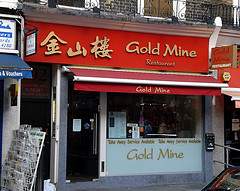
The basic function of money is as a medium of exchange. Inevitably, a secondary function arises as a measure of value. Money can be paper, precious metals, shells, whatever people in a particular time and place use as a medium of exchange. There’s no reason that it would need to have “intrinsic” value. If people use U S currency to buy and sell, then it is “real money.”
So is gold “real money?” I don’t think so. Just about nobody uses it as a medium of exchange. Historically, gold coins have sometimes been used but for ordinary people silver, copper, or base metal fiat-type money would be much more common.
Certainly fiat money can depreciate, usually does, and for us in the U S that has been and will almost certainly continue to be the trend. And gold might be a good investment, in the sense that it will be exhangeable in the future for more real wealth than it is now, or at least more in comparison to other kinds of investments available to ordinary people. Of course, gold can depreciate too, if large new deposits are discovered or folks decide they really don’t want gold after all. Which isn’t to say that either of these things will happen any time soon.
Anyone who wishes to resurrect the “gold standard” might want to read the late Peter Bernstein’s “Power of Gold,” or some other history books. Somehow we end up electing people who don’t put a high priority on keeping the dollar strong (or at least, not too much weaker). If that’s a problem, then maybe we should be electing other people, or finding ways to reduce the power of those who purchase elections. Making the U S dollar convertible into a fixed amount of gold is not going to bring prosperity, or even prevent further disruption. There are plenty of examples of economic collapse under a gold standard.
It might, however, benefit those who own gold, or gold mining stocks.
Somebody please disagree with me, or I will assume all of the above to be true.